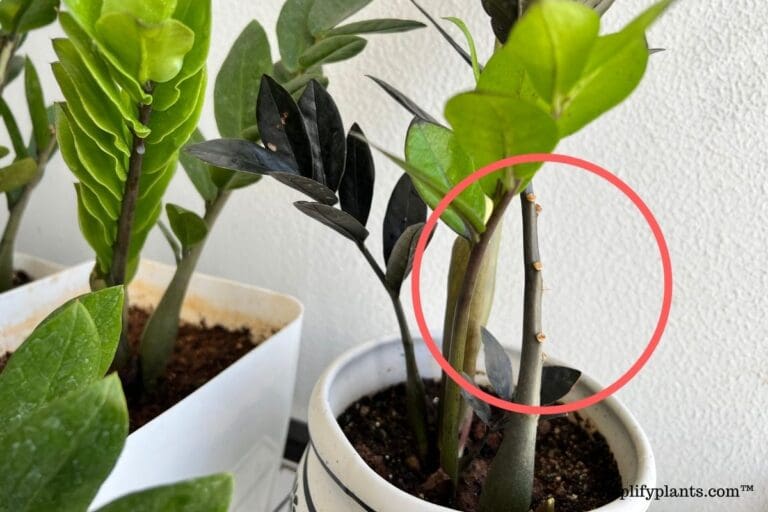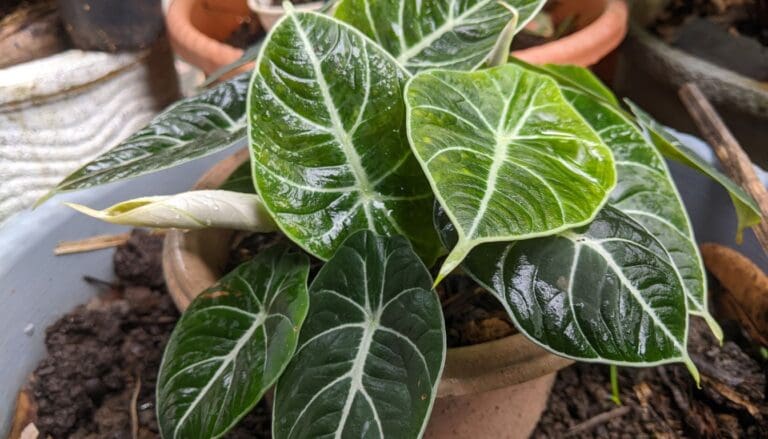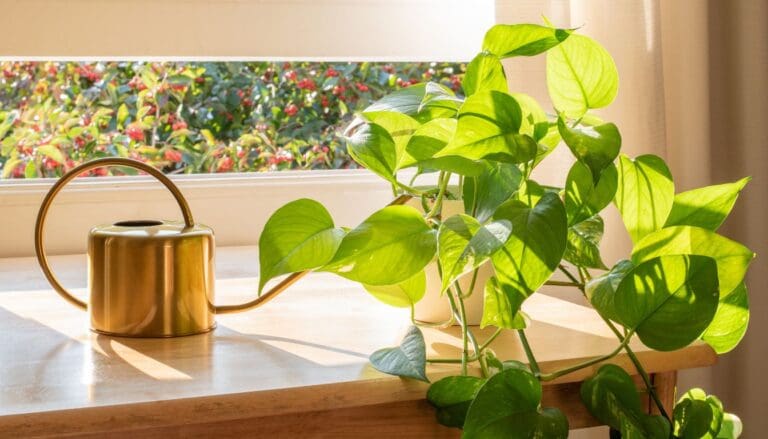Does Monstera Need Fertilizer? (What Type, How Much & More)
Monstera is a hardy tropical plant and needs occasional fertilization for optimal growth and strength. Let’s explore its fertilizer requirements.
Monsteras get their nutrients naturally from decomposing plant litter in the wild. Indoors, Monstera will need fertilizer to get its nutrients. Feed them 1-2 times monthly during the spring and summer and stop during winter.
Over my 12 years of gardening, I have gained enough knowledge about Monstera fertilization. In this guide, I will cover Monstera’s nutritional needs, recommended fertilizers, ideal fertilizer types, NPK ratios, fertilizing schedules, and related issues.

Please note: Simplify Plants is reader-supported. Some links in the post are affiliate links and I get a commission from purchases made through links in the post.
Understanding the nutrients needed by Monsteras
Monstera plants receive their nutrients in the soil naturally in the wild.
But indoors, you need to provide them separately through fertilization.
The three major nutrients are:
- Nitrogen (N)
- Phosphorus (P)
- Potassium (K).
Monsteras will need them in high quantities for their overall growth and development.
Besides them, Monsteras will also require some secondary nutrients and essential micronutrients, like:
- Calcium
- Magnesium
- Sulfur
- Iron
- Boron
- Manganese
- Zinc
- Copper
- Molybdenum
- Nickel
When selecting a fertilizer, ensure all these nutrients are present in it.
Monstera will absorb other nutrients – carbon, oxygen, and hydrogen – from air and water.
Let’s understand when and how often you should fertilize your Monsteras.
Fertilizing schedules and techniques for Monstera

Understanding the right time and frequency to fertilize Monsteras is essential for their healthy growth and development.
When is the right time to fertilize Monsteras?
Monsteras start their new growth in spring and develop vigorously till summer.
Hence, spring and summer are the right times to fertilize Monsteras.
As fall arrives, temperature reduces, and so does the plant’s growth.
Gradually reduce fertilization.
In the winter, Monsteras stop growing and become dormant.
Since it won’t be growing, completely stop feeding.
If you reside in warmer or tropical areas, your Monsteras won’t undergo dormancy, but their growth will slow.
You can gently fertilize them with liquid fertilizer.
How often and how much to fertilize Monsteras?
During the growing season, fertilize Monsteras either monthly or every 2-4 weeks.
The fertilization frequency will be influenced based on the seasons.
Below is a guide to the fertilization frequency and dosage:
- Spring is when Monsteras have begun new growth after the winter rest. Fertilize Monsteras once a month with a ¼th (for small pots) or ½th (for big pots) strength ratio.
- Summer is when Monstera’s growth is at its peak and develops faster. Fertilizer Monsteras every 2-4 weeks with ½th full strength ratio.
- Fall is when the temperature again begins to reduce. You will also notice slow growth in the plant. Fertilize once a month with a ¼th or ½th strength ratio.
- Winter is the time when the Monsteras go dormant and sleep. Since it will not grow, it won’t need any nutrients. So, stop feeding entirely. If you are from a warmer or tropical region, consider gentle feeding once every month or alternate months with ¼th to ½th the strength.
If you use liquid or quick-release fertilizers, apply them once a month or every 2-4 weeks.
Slow-release fertilizers release nutrients over the course of every 3-4 months when you water the plant.
Based on your plant’s growth speed, you can apply them every 3-4 months throughout the growing season or 1-2 times per season.
However, be careful and apply them at the beginning of the growing season as they take time to release the nutrients.
Don’t apply in the fall and winter.
How to choose the ideal type of fertilizer for Monstera?
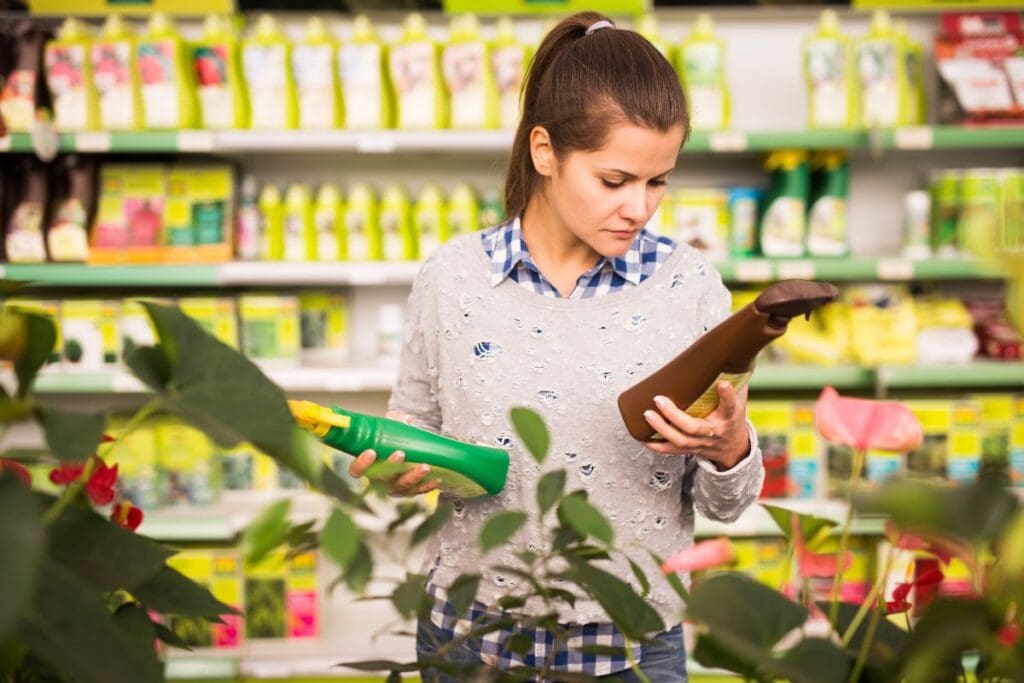
Several fertilizer types include synthetic, organic, slow-release, and liquid fertilizers.
Let’s understand which one can provide the proper nutrients to your Monsteras.
Organic vs. Synthetic fertilizers for Monsteras
Based on ingredients, there are two fertilizer types: synthetic and organic, and you can use both for Monsteras.
Organic fertilizers contain naturally decomposed material from animals, plants, and rock material.
They act slowly and have lower nutrient concentrations.
Key ingredients in these fertilizer types are bone meal, blood meal, seaweed, composted manure, and rock dust.
You can use organic fertilizers if you are okay with applying a weak fertilizer and worry too much about overfeeding.
Some ideal organic fertilizers are well-rotted manure, compost, fish emulsion, or worm castings.
Organic fertilizers promote a healthy microbiome in Monstera potting soil, where microbes break down the fertilizers and release them gradually.
On the other hand, synthetic fertilizers have mined minerals and synthetic chemicals.
They act fast and their nutrient concentration is higher than the organic fertilizers.
Common ingredients are ammonium nitrate, ammonium phosphate, and potassium chloride.
Since it has quick results, you need to use them frequently.
However, you must be careful while using them as the higher nutrient concentrations can cause fertilizer burns.
Liquid vs. slow-release fertilizers for Monsteras
Will Monsteras enjoy a quick boost or love the gradual release of the nutrients? They will enjoy both fertilizer types.
The next fertilizer type is based on how fast it works; there are two options: liquid and slow-release.
Liquid fertilizers are like synthetic fertilizers.
They are made to work fast and need to be applied more often.
Liquid fertilizers are my first preference when I don’t feed my Monsteras for a long time, and they require a quick boost.
On the other hand, slow-release fertilizers release nutrients slowly over time and hence need to be applied less often.
The nutrients get released gradually for months without having any fertilizer burns.
NPK formulas and fertilizer ratios for Monstera
The next thing to check while choosing the right fertilizer type of Monstera is their NPK value.
A balanced fertilizer with an NPK of 10-10-10 or 20-20-20 will work best for Monsteras.
It means the fertilizer contains 10% or 20% each of nitrogen (N), phosphorus (P), and potassium (K).
Besides that, another best fertilizer that provides a steady supply of significant nutrients would be a fertilizer with an NPK of 3-1-2.
Since the concentrations are lower than the balanced fertilizers, the chances of burns will be less.
Additionally, diluting and making the strength to half will give you total control over feeding.
If you don’t get a 3-1-2 fertilizer, below are some NPK ratios that meet the 3-1-2 fertilizer needs:
- 6-2-3
- 9-3-6
- 12-4-8
- 15-5-10
Though multiple fertilizers work similar to 3-1-2 fertilizer, avoid using nitrogen-rich fertilizers.
These might help in good vegetative growth but will suffer from phosphorus or potassium.
Best fertilizers for Monstera

Are you still struggling to find the ideal fertilizer types for Monsteras?
Here are some best fertilizers for Monsteras:
Best Monstera Synthetic Liquid Fertilizers
- Dyna-Gro Foliage-Pro Nutrient, 1 Qt
- Jack’s Classic All Purpose 20-20-20 Water Soluble Plant Food (1.5lbs)
- Espoma Organic 8 Ounce Concentrated Indoor! Plant Food – Indoor Plant Fertilizer for Large & Small Plants Like Pothos, Fiddle Leaf Fig, Monstera, Snake & Palms
- Miracle-Gro Tropical Houseplant Food – Liquid Fertilizer for Tropical Houseplants, 8 fl. oz.
- Monstera Plant Food by Houseplant Resource Center | Premium Liquid Fertilizer (5-2-3 NPK) – Ideal for Monstera, Pothos, and Snake Plants (8 Fluid Ounces)
- Monstera Plant Food – Organic Liquid Fertilizer for Indoor and Outdoor Monstera Plants – Nutrients for Healthy Tropical Leaves and Steady Growth (8 oz)
Take one gallon of water and mix with half-strength fertilizer evenly.
Water your Monstera with the mixture until the excess drains out.
To make the correct dose, follow the manufacturer’s instructions.
Best Commercial Slow-release Fertilizers
- Miracle-Gro Indoor Plant Food Spikes, Includes 24 Spikes – Continuous Feeding for all Flowering and Foliage Houseplants – NPK 6-12-6
- Osmocote Smart-Release Plant Food Plus Outdoor & Indoor, 8 lb.
- House Plant Fertilizer – Complete Slow Release Formula + Micro Nutrients by PowerGrow – Feeds Houseplants for 8 Months and Includes Over a Year Supply (6oz (1 House Plant Fertilizer Bag))
- Jobe’s Indoor Beautiful Houseplants Fertilizer Food Spikes – 30 Pack
Spread fertilizers around the plant, covering the top 2-3 inches of the soil at half the recommended strength.
If you have spikes, use a few sticks (check the instructions) near the roots in the soil.
Water your Monstera to activate the fertilizer and release the nutrients.
Best Organic Fertilizers for Monstera
The two best organic liquid fertilizers are:
- Natural Plant Food Fertilizer All-Purpose NPK Plant Care. 18 Balanced & Blended Vitamins & Minerals with Micro-Fungi and Bio-Organisms to boost your plants growth by Liqui-Dirt. Yields 50 Gallons
- Espoma Organic 8 Ounce Concentrated Indoor! Plant Food – Indoor Plant Fertilizer for Large & Small Plants Like Pothos, Fiddle Leaf Fig, Monstera, Snake & Palms
You can use worm castings for Monstera.
Spread half a cup of worm castings on the topsoil as a top dressing every 3 months: early spring, summer, and fall. Or, mix them into the potting mix during repotting.
Make worm-casting tea by steeping the castings in water overnight and straining them.
It will be rich in nutrients and won’t need further dilution.
One best organic slow-release or granular fertilizers is Jobe’s Organics 09524 Purpose Granular Fertilizer, 16 lb.
Homemade Fertilizers for Monstera Plants
Homemade Monstera fertilizers are organic, release the nutrients slowly, and don’t burn the roots.
Compost fertilizer for Monsteras

Compost is an excellent homemade fertilizer for Monstera.
Layer it on the topsoil or mix it into the soil.
Buy one electric home food composter, like Vitamix FC-50-SP Food Cycler FoodCycler FC-50, 2 L, Slate to make the compost.
However, based on the ideal NPK ratio Monsteras needs, compost’s ratio might differ.
Pay attention to the carbon-rich browns and nitrogen-rich green.
The best formula is 30 parts carbon and 1 part nitrogen for microorganisms powering the compost to have a balanced diet.
For brown ingredients, collect:
- Dried grass clippings
- Grains
- Feedstock
- Pine needles
- Hay
- Straw
- Autumn leaves
- Uncooked pasta
- Shredded paper like thin cardboard and newspaper. Avoid magazines.
- Woody plant material
- Sawdust
- Oats
For the green materials, use:
- Fruits and veggie scraps
- Table scraps
- Leftovers
- Fresh grass clippings
Use an electric composter for a traditional composter to make this fertilizer.
Egg shells for Monsteras
Egg shells can increase calcium in Monstera and ensure strong cell walls.
However, you should still need other fertilizers to provide the other nutrients.
To make eggshells:
- Wash the shells with warm water and remove the raw egg traces.
- Keep them out by putting on a paper towel or soft cloth and leave them overnight to let them dry out. If you are in a hurry, pop the shells on a baking sheet and dry them in an oven set at the lowest temperature.
- Grind the eggshells into powder and store them in an airtight container.
- Mix ½ to 1 teaspoon of the powder on the top soil well.
- Repeat it 1-2 times a year during the growing season for extra calcium.
Epsom salt and baking soda fertilizer for Monstera
- Fill a gallon container with water and add ½ tablespoon of baking soda.
- Mix the solution well and add another ½ tablespoon of Epsom salt. Don’t use those used for foot or bath.
- Pour ½ teaspoon of plain household ammonia. Avoid scented products or additives.
- Mix the solution and let it sit for 30 minutes to let everything dissolve well.
Whenever you use this fertilizer, mix one cup of it for every 1 quart of water and apply it once every 3-5 weeks.
During the winter, you can use it every 5 weeks (applicable to warmer or tropical regions where Monsteras don’t stop growing).
Common issues during Monstera fertilization
When you fertilize Monsteras, you will encounter two issues:
Overfertilization and underfertilization.
Let’s understand.
Overfertilization in Monsteras

When you fertilize your Monsteras too much, that’s overfertilization.
Overfertilization causes salt buildup in soil, burning roots and hindering nutrient and moisture absorption.
It mainly happens when you use high-concentrated fertilizers frequently or don’t dilute them well.
Here are the signs of overfertilization in Monstera plants:
- Browning at the leaf tips and edges
- White, crusty soil
- Stunted growth
- Yellowing or wilting
- Leggy growth
If you see these signs and identify the problem early, you can fix it with simple steps:
- Remove the topsoil containing white crust layers gently without hurting the roots.
- Flush off the soil with deep watering. Water your Monstera deeply until the excess drains out. Let the soil dry out a bit, and again water deeply.
- Do it for 2-3 times until all the salts drain out.
- Replace the top few inches of the potting mix with fresh soil mix.
- Don’t feed your Monstera for a few months and monitor the plant health.
- Flush soil periodically once a month to remove the salt buildup.
Underfertilization in Monsteras
While underfertilization is less dangerous than Monstera, it can weaken your Monstera and reduce its growth.
When Monsteras don’t receive adequate nutrients, they cannot produce enough chlorophyll or photosynthesize well.
Some potential signs of underfertilization in Monsteras are:
- Chlorosis or yellow leaves
- Stunted growth
- Small leaves
Sometimes, these signs could indicate other watering, light, or temperature issues.
If these are correct, recall the last time you fed your Monsteras.
You can haven’t fed your plants for a long time, provide a quick boost of fertilizer, and see how the plant reacts.
Over time, your plant should resume its growth again.
Final thoughts
Monsteras are not heavy feeders, but they benefit a lot from fertilization. It encourages good vegetative growth, promotes faster growth, and makes the plant strong and healthy. There are several fertilizer types of Monsteras: organic, synthetic, liquid, and slow-release. You can use anyone of your choice.
Use a 3-1-2 NPK fertilizer or a balanced fertilizer having an NPK of 20-20-20 for the best results. Use liquid fertilizers every 2-4 weeks and apply slow-release every 3-4 months during the active months. Reduce fertilizer frequency in the fall and stop in winter. Dilute your fertilizer to make the dosage 1/2 the recommended strength to reduce overfeeding.
If your Monsteras are overfertilized, remove the topsoil, flush off the soil, and add new topsoil. If you haven’t fed the plant for a long time, give it a quick boost with a liquid fertilizer. Water before and after fertilizing Monsteras. It can dilute the fertilizer further, reducing burns and letting the nutrients release evenly.
How much fertilizer should I use for Monsteras?
It depends on the fertilizer type and the season. Try to distribute the fertilizer evenly and consistently with the watering schedule for a better effect.
Is organic or synthetic fertilizer best for Monsters?
Synthetic and organic fertilizers both work for Monsteras, but excessive synthetic use can cause fertilizer burns. Organic fertilizers gradually release nutrients without harm.
Reference: Monstera Wikipedia
Recommended Garden Supplies
| Product Image | Our Recommended Gardening Supplies | Check Offers! |
|---|---|---|
Top Top
Top
Top
Top
Top
Top
Top
Top | rePotme Houseplant and Tropical Classic Potting Soil Mix | Check Offer On Amazon |
 Top
Top
Top
Top
Top
Top
Top
Top | Espoma Organic Indoor Plant Food | Check Offer On Amazon |
 Top
Top
Top
Top
Top
Top
Top
Top | GooingTop LED Grow Light 6000K Full Spectrum Clip Plant Growing Lamp | Check Offer On Amazon |
 Top
Top
Top
Top
Top
Top
Top
Top | Soil Moisture Meter | Check Offer On Amazon |
 Top
Top
Top
Top
Top
Top
Top
Top | Govee Hygrometer Thermometer, Bluetooth Enabled! | Check Offer On Amazon |
 Top
Top | LEVOIT Humidifiers for Large Room(Best For Plants) | Check Offer On Amazon |
 Top
Top
Top
Top
Top
Top
Top
Top | Upgraded DIY Automatic Drip Irrigation Kit, 15 Potted Houseplants Support | Check Offer On Amazon |
 Top
Top
Top
Top
Top
Top
Top
Top | Stainless Steel Heavy Duty Gardening Tool Set | Check Offer On Amazon |
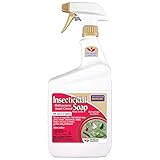 Top
Top
Top
Top
Top
Top
Top
Top | Bonide Insecticidal Soap | Check Offer On Amazon |
 Top
Top
Top
Top
Top
Top
Top
Top | Bonide 32 oz Spray Neem Oil for Organic Gardening | Check Offer On Amazon |
 Top
Top
Top
Top
Top
Top
Top
Top | Garden Safe Fungicide | Check Offer On Amazon |

